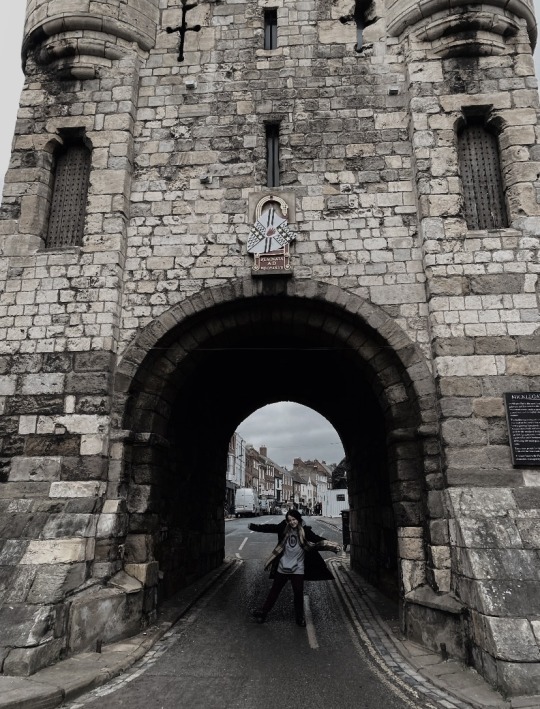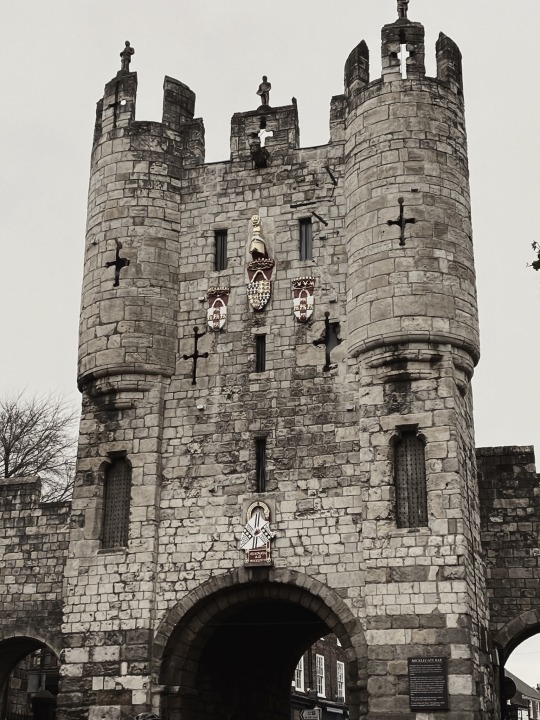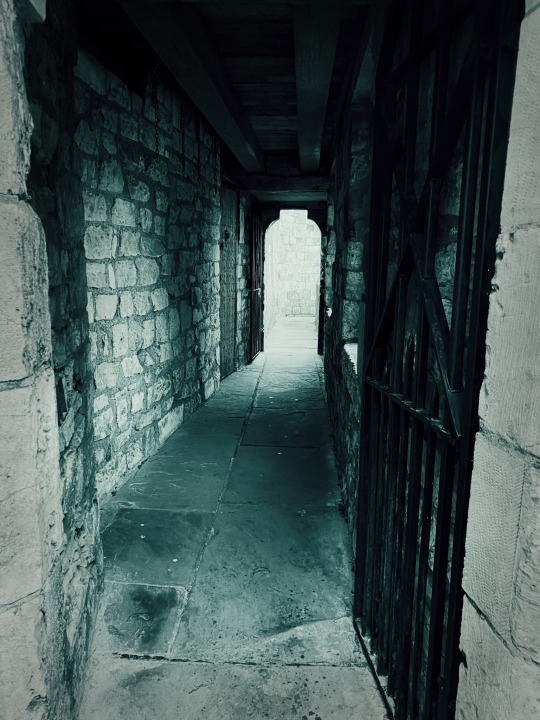#Battle of Bosworth
Text
What if our armies battled on Bosworth Field against each other hahaha jk… UNLESS

Was gonna save this for August 22nd but i’m an impatient little lass
#king henry vii#henry vii of england#king richard iii#richard III of England#Richard III#battle of bosworth#war of the roses#english history#plantagenets#tudor england#ermmm what the scallop#artists on tumblr#silly drawing#art#digital illustration#richardposting#henryposting
73 notes
·
View notes
Text

The Battle of Bosworth by Peter Jackson
#battle of bosworth#art#peter jackson#england#wars of the roses#medieval#knights#richard iii#king of england#king#henry tudor#middle ages#history#english#civil war#europe#knight#armour#mace#britain#plantagenets#plantagenet#house of york#house of tudor#tudors#tudor#wales#dragon#bosworth field#monarch
321 notes
·
View notes
Note
Can I have a fun fact? :3
Fun fact: the Renaissance (in England) is said as starting in the year 1485, the year Henry VII came to the throne after defeating Richard III at Bosworth field.
The year is totally arbitrary as there weren’t any drastic changes that year, but by Henry VIII we were in the Renaissance so they had to pick a year.
Bonus: the War of the Roses did not end in 1485 with the Battle of Bosworth field, but rather in the year 1487, after the failed Lambert Simnel Rebellion
#I have not done my Tudor history work btw#these are just facts I like#I need to finish that shit#Tudor#Henry 7th#Henry VII#Henry 7#Henry 8th#Henry VIII#Henry 8#Richard 3rd#Richard III#Richard 3#battle of Bosworth#battle of Bosworth field#war of the roses#fun fact#history
15 notes
·
View notes
Text
RIP Anne Neville's husband
69 notes
·
View notes
Text

The Battle of Bosworth
On this day, August 22, 1485, England's fate hanged by a thread as two rival kings prepared to clash on the fields of Bosworth.
Richard III, the final Plantagenet king, rode with grim determination to defend his crown against the upstart Henry Tudor.
Read more at The Medieval Scholar
#history#medieval history#on this day#otd#battle of bosworth#England#Plantagenet#Tudor#down with the upstart Tudors!
7 notes
·
View notes
Note
Hi! I don't know how much you're interested in the subject today, but considering how i really adored a lot of your opinions/views of the Wars of the Roses and some people involved, especially Richard III, i was wondering how you think a scenerio where Richard remained King for more time or simply won Bosworth would be
Thank you for the teresting question.
Contrary to historical fiction works that portray him as desperate at the Battle of Bosworth, I think it's more likely Richard was hoping to get rid of Henry Tudor quickly and saw him as just a temporary nuisance. If only the battle had happened a couple of days later, when Richard got reinforcements from the North, or if William Stanley had not made the decision to definitely switch sides to Henry, the battle would've probably gone completely differently.
Below is my speculation of what happens if Richard wins:
The immediate outcome seems relatively clear - we know now that Richard was in the middle of secret negotiations with the royal family of Portugal for a double marriage between him and Infanta Joanna, and Elizabeth of York and King's 16-year old cousin Manuel, Duke of Beja, which were apparently going very well. It seems unlikely that Joanna, who had been refusing to get married for so long, would accept, but supposedly the negotiations were going well. We know Richard had sent her a personal letter, so it's fun to speculate what he said that would make her reconsider. I'm thinking he may have talked about religion (as they were both known to be pious) and pitched the marriage in terms of a partnership, and how she could do good for peace and the people of England through charity work (which she was known to do) and maybe even assured her that she wouldn't have to keep having children after she gave birth to an heir? Richard was expected to remarry and have a son after his only legitimate son and his wife died, but going by his choice of bride, he was looking for a great Queen and political partner above all, and not a broodmare - I can't imagine Joanna, who wanted to be a nun and was against marriage, agreeing to keep popping up a child every year or two until she hits menopause. He also may not have been two concerned because he had an heir and spares already, even though not 'of his body'- - his adult nephew John de La Pole and his younger brothers William, Edmund and Richard. The Portugal double marriage would've been a genius political move for many reasons: it would allow Richard to claim that he was ending the York/Lancaster rift for good by marrying Joanna, since the Portuguese royal family were through the female line the main surviving Lancastrian branch; it would fulfil his promise to Elizabeth Woodville that he would find good matches for her daughters in spite of their new 'bastard' status - and how! a Portuguese royal marriage was worthy of a princess* - and could be seen as healing the rift between the Yorkists too (and would at the same time make it impossible for Henry Tudor or anyone else to try to claim the throne of England by marrying her); and it would give England a great, intelligent and respectable Queen, who had experience in ruling as regent and could rule in RIchard's absence when he spent time abroad in wars, and whose reputation for piety and charity for people would help restore his tarnished reputation.
One interesting consequence of his marriage alliance is that Elizabeth of York would eventually have become a Queen Consort, but of Portugal, as Manuel eventually became King.Manuel I in 1495.
Once the situation became more stable, Richard would've probably focused on the things he had already started to do during his short reign - legal reforms aimed mostly at bettering the judiciary and the status of common people, and he would no doubt also want to curtail the power of major noblemen of questionable loyalty such as the Stanleys - and things he is known to have enthusiastically talked about planning to do, such as trying to convince other European countries to mount a campaign to stop the Ottoman Empire's conquests in Europe. (France would be an unlikely ally, Portugal and Burgundy would be obvious ones, and he'd no doubt try to pitch it to the Holy Roman Empire.)
I don't know whether he'd be successful at that, or how long he would live, but a few most obvious historical consequences would be:
the way the previous few decades were remembered in history would be very different, and no one would ever call them the "Wars of the Roses" - which was a name given by Walter Scott in the 19th century based on the fact that Henry VII used the red-white Tudor rose as his sigil, promoting it as a sign of supposed unity between the Lancaster and York dynasties - in spite of the fact that the Lancasters didn't actually use a red rose, or any kind of rose, as their sigil. Henry VII also presented the conflicts that had gone on as a part of one ongoing conflict that he ended with the Battle of Bosworth and by marrying Elizabeth of York. In reality, these were a few conflicts separated by years or even decades in between, and before the battle of Bosworth, the last actual armed conflict fought over the throne of England had been 14 years earlier, when Edward IV won his second and decisive war over the Lancasters. The conflict between the two Yorkist factions after Edward's death did not result in any actual battle (in 1783, Buckingham failed to ignite a rebellion, and his ally Henry turned back to France, realizing the war was lost before it began), so Henry basically 'ended the Wars of the Roses' only after he restarted them in 1485. (Not to mention that Henry had to fight another battle two years later against the Yorkists led by Jon de la Pole, which is always conveniently left out in history books, and had to catch, exile or execute various Yorkist pretenders throughout his reign.) If Henry loses the battle, he becomes only a footnote in history. Edward IV remains considered the one who ended the Lancaster-York conflicts with his decisive victory in 1471. Richard probably manages to be popular and respected king (much more than Henry was with his notorious tax laws) and would likely have claimed to have 'united the York and Lancaster branches' with his marriage to Joanna (though he probably wouldn't have made a huge deal out of it as Henry did, since Henry was promoting himself as the founder of a new dynasty that would start a new era). But what of the Princes in the Tower? Well, we don't know what happened to them and Richard may be suspected to have murdered them, but Henry definitely did imprison 11 year old Edward of Warwick and keep him locked up in the Tower until he was 25 and then executed him on trumped up treason charges just because he was another pretender to the throne, but barely anyone talks about it or cares, so... (insert something about history being written by the winners)
Scotland and England remain separate independent countries. It's very unlikely that the same chain of events would happen where the daughter of a king of England marries a king of Scotland, and then a century later her descendant becomes not just the king of Scotland but also the heir to the throne of England because the ruling dynasty of England died out. There is never a Tudor dynasty, never a Stuart dynasty, never a Hanover dynasty. And there's never a United Kingdom.
There is never such a thing as Anglicanism/the Church of England, with the monarch as its head. Mind you, this doesn't necessarily mean that England remains fully or predominantly Catholic - Protestantism was gaining popularity not just in England (even when Henry was still a devout Catholic) but also in Scotland, which didn't have a Henry VIII splitting with the Pope so he could annul his marriage. It's impossible to tell how exactly the Reformation and Counter-reformation would've affected England under different monarchs and a different dynasty, since so much of the religious strife in the 16th century was linked to Henry's decisions, his break from the Pope, his marriages and annulments and his succession issues, and then with the personalities and backgrounds of his children: Edward as a staunch Protestant (just like his mother's family), Mary as a staunch Catholic (completely unsurprising with her background and the fact that her father broke from the Pope so he could annul his marriage to her mother, proclaiming her a bastard), and then Elizabeth, who couldn't be tolerant to Catholics even if she didn't care about religion, since the Pope and therefore all Catholics considered her a bastard and an illegitimate monarch. How would elderly Richard, and/or his heirs, treat Protestants? What would they think of Martin Luther, or of William Tyndale? It's impossible to tell. He was a devout Catholic, but Protestantism didn't exist at the time, and would he (who was the first of English kings to publish official state documents in English) hate the idea of translating the Bible into English so ordinary people could understand it without the help of clergy? I really don't know, and it's even harder to tell what his heirs would be like in that regard. Would there be more religious tolerance in England? For all we know, it might even be less if a particularly fanatical monarch ended up on a throne... but at least I think I can say with some certainty that English monarchs of this hypothetical York dynasty would have no personal and dynastic reasons to persecute either Protestants or Catholics the way monarchs of the Tudor dynasty had due to their specific circumstances.
#richard iii#english history#henry vii#the wars of the roses#battle of bosworth#the tudor dynasty#edward iv#elizabeth of york#henry viii#church of england#english reformation#wars of the roses
13 notes
·
View notes
Quote
The focus on who fought or failed to fight for Richard, and in particular on the contribution of the Stanleys, obscures a simple truth about Bosworth, and perhaps about Richard III. It was one that the Tudor historian Polydore Vergil recognized. ‘The report is that Richard could have saved himself by flight’. He could have left the battlefield as others had done before (including the father he venerated), to fight another day. He would have lost Bosworth, and survived. Edward IV had been more bereft of support than Richard ever was, both after Edgecote and at the Readeption, yet had managed to return.
David Horspool, Richard III: A Ruler and His Reputation
#probably VERY few people were expecting him to die#they probably expected an edward iv x henry vi situation#with years of stalemate conflict dragging on#battle of bosworth field#wars of the roses#battle of bosworth#historian: david horspool
30 notes
·
View notes
Text

Blackadder S01E01 "The Foretelling" (watch the scene)
#Richard III after winning the Battle of Bosworth walks around whistling looking for a horse.#THE BEST RICHARD III EVER#peter cook#blackadder#rowan atkinson#richard iii#wars of the roses#medieval era#richard plantagenet#shakespeare#henry vii#battle of bosworth#my gifs
38 notes
·
View notes
Text
Richard's charge at Bosworth, according to Edward Hall's chronicle.
...And being inflamed with ire and vexed with outragious malice, he pit his spurres to his horse and rose out of the dyde of y range of his battaile, leyung auntgardes fighting and like a hungry lion ran with spere in rest towards him.
Therle of Richmonde perceyued wel the king furiusly commying towards him, and by cause the hole hope of his welth and purpose was to be determined by battaill, he gladly proferred to encoutre with him body to body and man to man.
Kyng Rychard set on so sharpely at thefirst Brout y he ouerthew therles standarde, and slew Sir William Brandon, his standarde bearer(which was father to Sir Charles Brandon by kynge Henry VIII. created duke of Suffolke) and marched hand to hand w sir Ihon Cheinye, a man of great force and strenght which would haue resisted him, and the said Ihon was by him manfully ouerthrowen, and so he making open passage by dent of swerde as he went foward,
therle of Richmond with stode his violence and kept him at the swerdes poincte without auantage longer than his companions other thought or iudged, which beying almost in dispaire of victorie, were sodainly recomforted by Sir William Stanley, whiche came to succours with III. thousand tall men, at which very instant kyge Richardes men were dryuen back and fledde, and he himself manfully fyghtynge in the mydell of his enemies was slayne and brought to his death as he worthely had deserued.
Edward Hall's Chronicle was first published in 1548, admitably many decades after Bosworth(1485). But interestingly, not just Vergil describes Henry VII withstanding brunt of Richard's charge for at least a while...
Not all details are same as in my previous post about battle of Bosworth(because i tried to find more contemporary sources) but it is very interesting to hear what more common people(not noblemen and courtiers) thought happened in Bosworth.
If anybody would wish to read in Hall's chronicle, it's online!
And here is the link:
24 notes
·
View notes
Text

The Hooded Man by Isaac Villacres
Feel free to like or reblog but please do not repost! All rights reserved.
#writers on tumblr#art#character art#character design#fantasy art#art for mistland#tales from mistland#the hooded man#gothic#alternate history#richard iii#wars of the roses#battle of bosworth
6 notes
·
View notes
Text
“Yeah, the battle was fine, Richard was so dramatic though, the halberd didn’t even go that far into his skull.”

#henryposting#henry vii#king Henry vii#battle of bosworth#war of the roses#tudor england#the tudors#tudor era#ermmm what the scallop#artists on tumblr#silly drawing#art#digital illustration
30 notes
·
View notes
Text

The Last Charge of Richard III
by Graham Turner
#richard iii#cavalry charge#england#wars of the roses#battle of bosworth#sir henry brandon#henry tudor#art#europe#european#history#medieval#middle ages#plantagenets#plantagenet#house of york#house of lancaster#house of tudor#english#king of england#king#monarch#crown#standard#knights#knight#armour#mace#lance#bosworth field
193 notes
·
View notes
Text
Ohhhh oh my god “I took back the throne of England by Right of Conquest.” Should we tell everyone? Should we throw a party? Should we invite King Arthur?
#I LOVE YOU HENRY VII THIS JUST CAME TO ME IN A VISION OKAH#Happy Bosworth day#amanda speaks#henry vii#I love King Arthur that much too. he’s just like me fr.#the wars of the roses#battle of bosworth#battle of bosworth field
13 notes
·
View notes
Text
THE WHITE QUEEN 10-Year Anniversary Week -> Free Day
As always, I’m a bit late with this post, but I sort of deliberately saved it for today, August 22.
It is the 538th anniversary of the Battle of Bosworth. Richard III, the last Plantagenet king, was “piteously slain” in battle and Henry Tudor began a new era of English history, later reigning as Henry VII. To the victor go the spoils.

Richard III was king for only a brief time, but thanks in part to being Shakespeare’s most compelling character, and later to those historians who revised the public view of this 15th century monarch, Richard lives on, possibly the Plantagenet era’s only real modern celebrity.
The White Queen indirectly spawned Plantagenet Shade, a podcast co-hosted by @grand-duchessa and yours truly, @scribblesincrayon. Our very first episode was actually about Philippa Gregory’s Cousins War series. Unsurprisingly, however, our most popular episode was about Richard III and Ricardian fiction, featuring The Sunne in Splendor and The Seventh Son.
Check it out!
#twq10#richard iii#the white queen#like a plantagenet#ALL THE FEELS#battle of bosworth#the day chivalry died#podcast people#plantagenet shade#historical shenanigans
9 notes
·
View notes
Text










I didn’t manage to cosplay Richard iii (the version of Richard in Requiem of the Rose King) to pay homage upon the place his head was displayed as a rebel and traitor within his own home, York, fuelled with obscene rumours to the point where it was said he was in his parents womb for 2 years and a demonic monster over his body, and it was believed, over trying to rule during the War of the Roses.
Amongst downfalls, rumours are spread to ready a more secure a more loved position and angelic assumed appearance for the ones taking over as not to allow for a mutiny essentially and uproar against the new ones replacing them to take over, and cover ups to present a new line as Good, and only Good for the people.
It is said he obviously had his wrongs, but comparably it was better to a lot during that time of who was veering for power.
There’s a lot of false poison placed as fact, much which was never proved, and much which was just obvious bull now we look at it these days, and this was done to remove the return of certain families during War which threatened those who wanted to have their status.
The utmost end point is to secure a throne, and people will do absolutely anything.
This place is known as the Micklegate Bar, many people have passed beneath it and many heads have been presented upon it, it is the southern entrance to York.
I made it here, and I’m glad. A rich piece of history of a truly awful time upon these islands.
#richard plantagenet#richard iii#king richard iii#micklegate bar#war of the roses#battle of bosworth#city of york#yorkshire#Yorkshire history#York history#history#listed building#Yorkist dynasty#my photography#my photos#my face#requiem of the rose king#bara o no souretsu#baraou no souretsu#aya kanno#anime#historical anime#historical manga
38 notes
·
View notes
